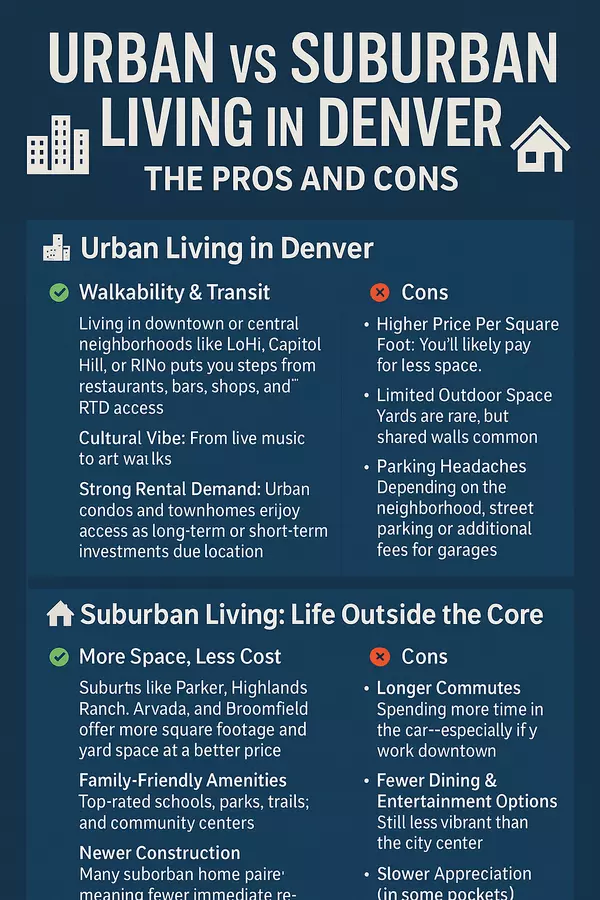Navigating the Tides: How Remote Work is Shaping Denver's Real Estate Landscape

Introduction:
With the rise of remote work, there has been a significant shift in housing demands across the United States. Denver, with its favorable climate and plethora of outdoor recreational options, has emerged as a hotspot for telecommuters. This blog post aims to shed light on the impact that remote work has had on Denver’s real estate market and housing demands.
The Emergence of Remote Work:
The 2020s has been a decade of change. With the advancement in technology and as a consequence of the global pandemic, remote work has become the new normal for a large number of employees. This transformation is not just a temporary response, but rather an ongoing evolution that has upended traditional work models. With the flexibility that remote work offers, many have started looking beyond their immediate neighborhoods for housing options.
Influx of Remote Workers to Denver:
Denver, often termed as the Mile High City, is known for its 300 days of sunshine, an abundance of parks, and a vibrant culture. These attributes have made it an attractive destination for remote workers. Many individuals and families have migrated to Denver, which has significantly contributed to the city's population growth over the past few years. This migration pattern has impacted both the rental and housing markets.
Skyrocketing Housing Demand:
As the influx of remote workers to Denver continues, the demand for housing has soared. The city’s real estate market, already robust before the rise of remote work, has been on an upswing. This is reflected in the increasing home prices and lower inventory. As of 2023, Denver’s real estate market is one of the hottest in the country.
Shift in Housing Preferences:
Along with the increase in demand, there is also a notable shift in housing preferences. Remote workers are often looking for spaces that can accommodate home offices and provide a conducive work environment. Features such as high-speed internet, home office spaces, and quieter neighborhoods are now high on the priority list.
Impact on Rental Market:
The rental market in Denver has also felt the ripple effect of the remote work revolution. With a higher demand for rental properties, particularly in areas with good amenities and connectivity, rental prices have seen a sharp increase. However, this surge in rental demand is also causing a shortage of affordable housing options for locals.
Preparing for the Future:
As remote work continues to shape Denver’s real estate landscape, both buyers and sellers need to adapt. Here are a few tips:
1. **For Buyers**: Be prepared for a competitive market. Research the neighborhoods thoroughly, secure your financing in advance, and be ready to make quick decisions.
2. **For Sellers**: Understand that remote workers may have different preferences. Highlighting features such as a home office space, high-speed internet connectivity, and proximity to parks can make your property more appealing.
3. **For Investors**: Keep an eye on emerging neighborhoods and trends. With the continued influx of remote workers, there may be new investment opportunities in both residential and commercial real estate.
Conclusion:
Remote work has made a profound impact on Denver’s real estate market and housing demand. As the city continues to attract a diverse pool of remote workers, understanding and adapting to the evolving market trends will be key for buyers, sellers, and investors alike. In this ever-changing landscape, staying informed and being flexible are vital for success in the Mile High City’s bustling real estate market.
Categories
Recent Posts










